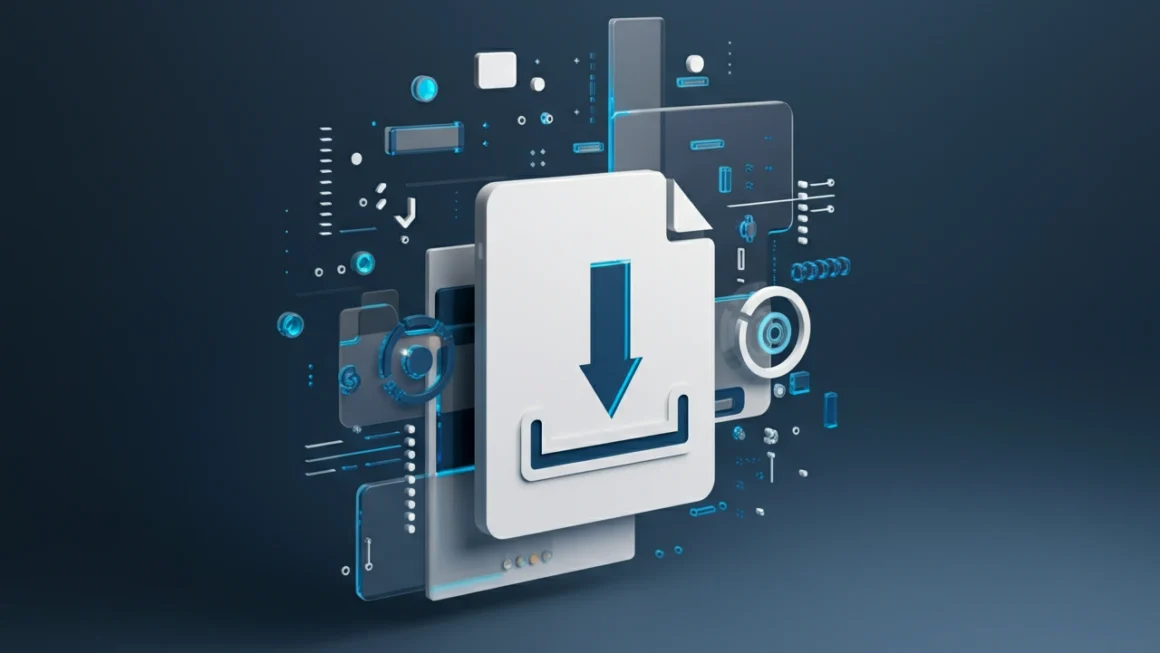Navigating the world of software downloads can feel overwhelming, especially when you’re searching for specific versions or tools. If you’ve been wondering about software huy6-95fxud8 can i get rucsdasuk235.0 software, you’re not alone in seeking clarity about obtaining, verifying, and safely installing software from online sources. This guide will walk you through everything you need to know about finding legitimate software, verifying its authenticity, and protecting your system from potential security risks.
Understanding software versions and their proper sources is crucial in an era where cyber threats are increasingly sophisticated. Whether you’re a professional seeking specific development tools or an everyday user looking for particular software solutions, knowing how to navigate the download process safely can save you from malware infections, data breaches, and system compromises.
Understanding Software Versions and Verification
Software version numbers like “huy6-95fxud8” and “rucsdasuk235.0” may appear cryptic, but they typically serve important purposes in software distribution. These identifiers help developers track different releases, patches, and builds of their applications.
Before attempting any download, it’s essential to understand what you’re looking for. Legitimate software typically comes with:
- Clear version numbering systems
- Official release notes
- Digital signatures from verified publishers
- Transparent licensing information
- Direct links from official sources
Why Official Sources Matter
Downloading software from unverified sources poses significant risks. Compromised files can contain:
- Malware and viruses
- Spyware that tracks your activities
- Ransomware that locks your files
- Backdoors that grant unauthorized access
- Cryptocurrency miners that slow your system
Always prioritize official websites, verified app stores, and trusted distribution platforms when searching for any software.
How to Find and Download Software Safely
When searching for specific software versions, follow these systematic steps to ensure you’re getting legitimate files:
Step 1: Identify the Official Source
Start by researching the software developer or publisher. Look for:
- The company’s official website
- Verified social media accounts
- Official documentation or support pages
- Recognized software repositories
Use search engines carefully, as malicious sites often rank high for popular software searches. Check the URL carefully before clicking any links.
Step 2: Verify Publisher Information
Once you’ve located a potential download source, verify the publisher’s credentials:
- Check for HTTPS encryption in the URL
- Look for contact information and physical addresses
- Read user reviews from multiple platforms
- Verify the company’s business registration if possible
- Check for official partnerships or certifications
Step 3: Download from Trusted Platforms
Consider these verified platforms for software downloads:
- Official developer websites
- Microsoft Store
- Apple App Store
- GitHub (for open-source projects)
- SourceForge
- CNET Download.com (use caution with bundled software)
Verifying Software Authenticity Before Installation
After downloading any software file, verification is critical before installation.
Check File Integrity
Most legitimate software publishers provide checksum values (MD5, SHA-1, or SHA-256) on their download pages. Use these to verify your downloaded file hasn’t been tampered with:
- Download the checksum tool for your operating system
- Calculate the checksum of your downloaded file
- Compare it against the official checksum provided
- Only proceed with installation if they match exactly
Scan with Security Software
Before opening any downloaded file:
- Run a full antivirus scan
- Use multiple scanning tools if possible
- Check the file with online scanners like VirusTotal
- Enable real-time protection during installation
Review Digital Signatures
Windows and macOS allow you to check digital signatures:
Windows: Right-click the file → Properties → Digital Signatures tab
macOS: Control-click the file → Get Info → check the “Signed by” field
Legitimate software will have valid signatures from recognized publishers.
Alternative Methods and Resources
If you cannot find the specific software version through official channels, consider these alternatives:
Contact the Developer Directly
Reach out to the software company through official support channels. They can:
- Confirm whether the version exists
- Provide legitimate download links
- Suggest current alternatives
- Clarify licensing requirements
Explore Software Archives
Some legitimate archives maintain older software versions:
- Internet Archive’s Software Collection
- OldVersion.com (use with caution)
- Official legacy software repositories
Always exercise extreme caution with archived software, as older versions may contain unpatched security vulnerabilities.
Consider Updated Alternatives
If the specific version is unavailable, newer releases often provide:
- Improved security patches
- Better compatibility with modern systems
- Enhanced features and performance
- Active developer support
Troubleshooting Installation Issues
Even with legitimate software, installation problems can occur.
Common Issues and Solutions
Compatibility Errors: Verify your operating system meets the software requirements. Check for 32-bit vs. 64-bit compatibility.
Permission Denied: Run the installer as administrator (Windows) or use sudo commands (macOS/Linux).
Missing Dependencies: Install required runtime libraries or frameworks specified in the documentation.
Antivirus Interference: Temporarily disable antivirus during installation, but re-enable immediately after.
Support Resources
When troubleshooting fails:
- Consult official documentation and FAQs
- Search support forums and community boards
- Contact official technical support
- Check for known issues in release notes
Best Practices for Software Management
Maintaining security doesn’t end after installation.
Keep Software Updated
Enable automatic updates when possible, or regularly check for new versions. Updates often include:
- Critical security patches
- Bug fixes
- Performance improvements
- New features
Practice Good System Hygiene
- Maintain regular system backups
- Use reputable antivirus software
- Enable firewalls
- Limit software installation to necessary applications
- Regularly review installed programs
Monitor System Performance
Watch for signs of compromised software:
- Unexpected slowdowns
- Unusual network activity
- Unauthorized system changes
- Strange error messages
Understanding and Mitigating Risks
Every software installation carries inherent risks, but awareness helps minimize them.
Common Risk Factors
Malware Distribution: Fake software sites often distribute malicious files disguised as legitimate applications.
Data Theft: Compromised software can steal passwords, financial information, and personal data.
System Damage: Poorly designed or malicious software can corrupt system files or cause crashes.
Legal Consequences: Pirated or unlicensed software can result in legal action and fines.
Risk Mitigation Strategies
- Never disable security software for downloads
- Use virtual machines for testing unfamiliar software
- Maintain offline backups of critical data
- Read and understand licensing agreements
- Keep detailed records of software sources
Making Informed Software Decisions
Finding and installing software safely requires diligence and informed decision-making. While searching for software huy6-95fxud8 can i get rucsdasuk235.0 software or any specific version, remember that security should always be your top priority.
If official sources don’t provide the exact version you’re seeking, this often indicates the software may be outdated, discontinued, or potentially illegitimate. Consider reaching out to official support channels for guidance, or explore current alternatives that offer better security and support.
Protect your digital environment by prioritizing verified sources, maintaining robust security practices, and staying informed about potential threats. Your system’s integrity depends on the choices you make during the software acquisition process.




